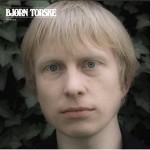Interview
Earplug
September 2007

While Norway’s sub-Arctic climes have frequently proven fertile ground for cold, distant dance music, the Scandinavian sound currently flooding clubs is warmer, more spacious, and mystical, referencing the country’s wide-open vistas and extended evening hours. Bjørn Torske is adept at conjuring up such a panoramic feel, folding elastic melodies and offbeat percussion into a bed of warm synthesizers. This year’s Feil Knapp, a fusion of the organic and electronic, reconciles house’s synthetic studio pulse with a carefree, almost primal, vibe. During a break at his studio in the university town of Bergen, Torske recently spoke by phone with Earplug’s Patrick Sisson about his musical roots.
Earplug: How did growing up in northern Norway, with the long days and nights, affect your career?
Bjørn Torske: What drove my friends and I growing up in Tromsø to make music was the fact that there was no music scene. You had to mail-order records, and before you could order, you had to know what to order. It was a slow process with a lot of boredom inserted into it. We had to do something to amuse ourselves. In my case, it was music. A producer named Biosphere was a mentor who got me started. I think of his music as the soundtrack for the dark times in the winter.
EP: You also grew up with the guys from Röyksopp. How did you all meet?
BT: In 1987, I started hosting a show at Brygga, a local radio station. One of the guys, Torbjörn [Brundtland], had an older sister who worked at the station, who is now my wife. She introduced me. I remember meeting them in the basement of one of their parents’ houses and seeing them play with this league of synthesizers. They didn’t know anything about MIDI, so they were kind of rehearsing, properly playing all the instruments in time. When I showed them MIDI, they were like, “I can pretend to be the director of an orchestra and I don’t need the musicians?”
EP: Why do you think the cosmic-disco or space-disco sound developed in Norway? And why do your country’s producers take a slightly different approach?
BT: I think it’s about a good mixture of organic and electronic. British DJs like DJ Harvey and the Idjut Boys were also influential here in the mid-’90s. When everything was fast club music, they were going the opposite direction with slower beats. They were kind of outsiders in the big European club scenes, and Norwegians, who wanted a more special sound, picked up on them. But it’s hard to come up with just one reason, since house and techno have been here since the ’80s. Things started to grow together in the mid-’90s, but the approach is different in different places. Guys like Prins Thomas have a different approach. It’s not strictly electronic. It was more in the middle between disco, R&B, and soul.
EP: There is a big dub influence on the new disc. Are you a fan?
BT: My taste in dub and reggae has really developed over the last decade. I started with dubbier stuff and then got into the world of reggae and African music, which opened up a huge space I’m trying to discover. It has such roots and history, and it’s a cliché to say, but without that music, what we’re doing today wouldn’t be happening. Recently, I picked up the Folkways library, a collection of Afro-American beats, indigenous beats, Caribbean music, and jazz that the Smithsonian put out. Some of it is like today’s house music. The sound recording is poor, but the syncopation and repetition are there.
EP: Was music like that on your mind when you were making this album?
BT: Discoveries like that are vital. When I make a beat with a drum machine, I think, “How would this sound with a bongo?” Or if I hear something organic, I think, “How can this be transferred into something electronic?” I think that’s the idea of techno. The same rhythms circle around people and cultures and they get a new translation. You see this picture getting bigger, but it’s still the same picture — just with more variety.
EP: Do you find the “disco” label restrictive, since you incorporate so many different styles?
BT: At least people have an umbrella term for it, and not something like “ultra-intelligent, downbeat, eclectic, harmonic dance music.” I’m not a schooled musician. For me, it’s a sound thing. As long as people call it music, or close to music, I’m happy.